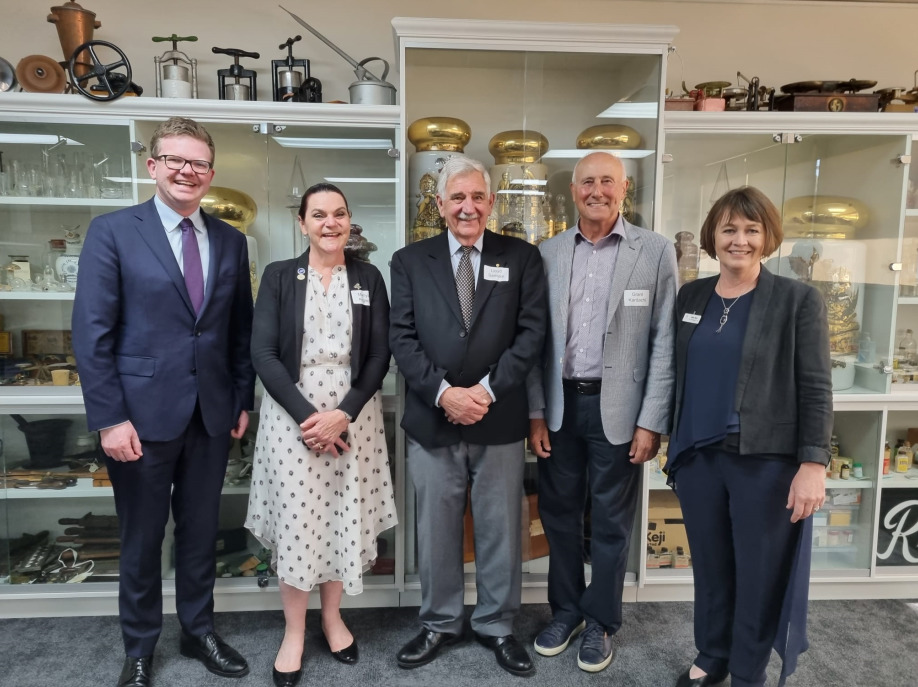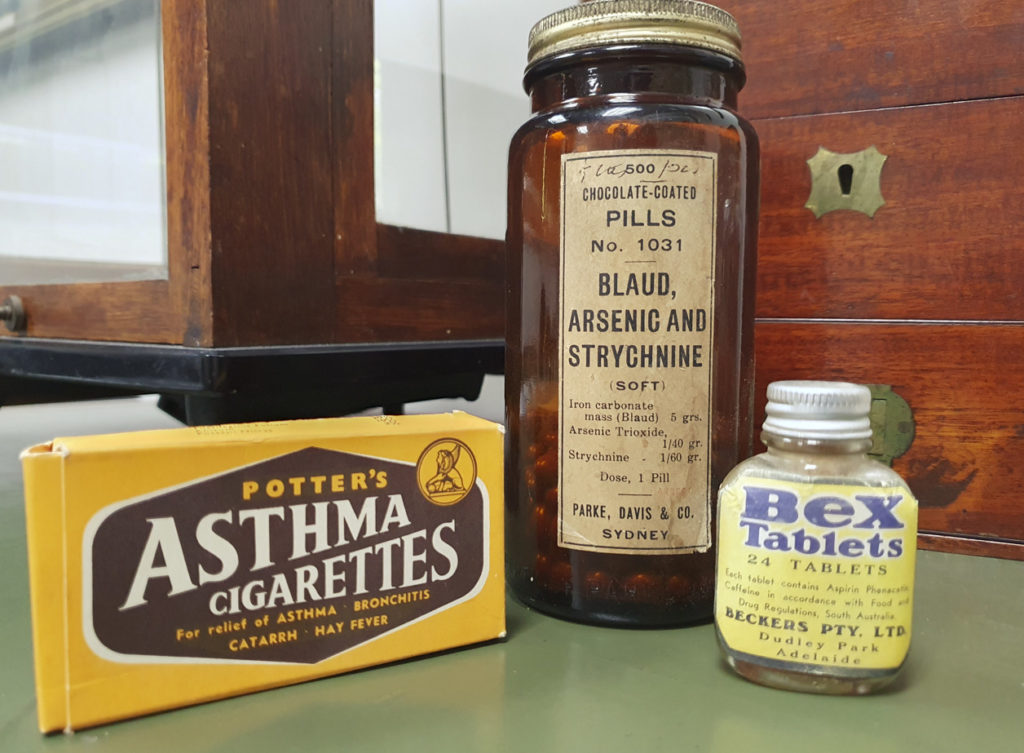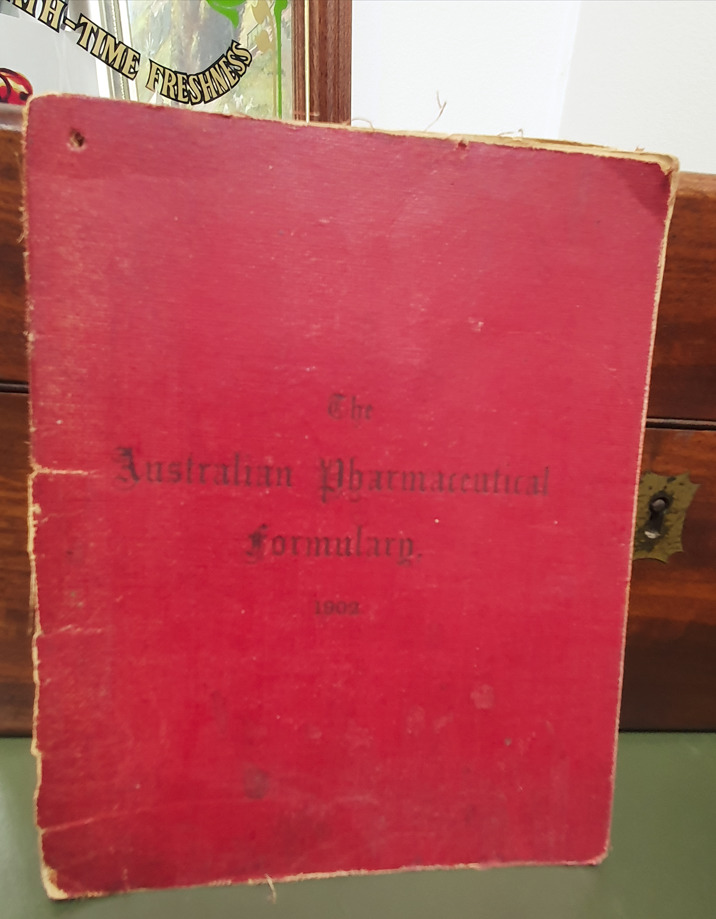SA Health Minister launches PSA Museum
Friday 16 December 2022
The Pharmaceutical Society of Australia (PSA) is proud to open the new pharmaceutical museum in South Australia.
The collection, which is housed at the PSA offices in Adelaide, showcases the history of pharmacy practice, including compounding from botanical sources: opium poppies, lavender, coca, and cannabis through to the emergence of propriety products like asthma cigarettes and various other products like chocolate coated Blaud, strychnine and arsenic pills.
The South Australian Health Minister Chris Picton MP formally opened the museum today. The Minister commended PSA for its work on curating the museum.
“It is wonderful to see such an important and interesting part of our health history on display for South Australians to enjoy. This museum demonstrates just how far pharmacy has come, while showcasing its fascinating origins” the Minister said.
PSA South Australia and Northern Territory Vice President Dr Manya Angley thanked the Health Minister for opening the museum, saying that it demonstrates just how far pharmacy has come.
“We are very lucky to have medicines and tools from pharmacists dating back to the 1800s,” Dr Angley said.
“Many of them we now consider dangerous, with regulations and testing increasing safety in use of medicines and medical devices.
“The collection also contains the beautiful gold leaf carboys which are used as decoration with no other function. There is a significant collection of items from the Runges Pharmacies that were acquired by PSA in the 1980s.
There is an extensive collection of historic books including one pharmacological text dating back to 1704! Among other texts on display are a number of handwritten prescription books – still in use in the 1970s – pharmacists’ own formularies, a collection of pharmacopeias from South Australian hospitals and some versions of the Australian War Pharmacopeia. The museum also houses one of the only collections containing every edition of the ‘bible of pharmacy’, PSA’s Australian Pharmaceutical Handbook and Formulary (APH).
“The museum is a special place for pharmacists to better connect with the profession and will be a central part of future PSA events in Adelaide.
“We sincerely thank Runge family, Trevor Lockett, Trevor Craig and Brian Edwards for their generous donations to the museum.
The Minister also announced the naming of the Lloyd Sansom training room and Grant Kardachi boardroom in recognition of both Lloyd and Grant’s significant and enduring leadership in pharmacy.
The museum will be open to the public by appointment with the PSA SA Office on (08) 8272 1211.
Media contact: Candice Burch M: 0403 973 097 E: candice.burch@psa.org.au
The Pharmaceutical Society of Australia is the only national peak body that represents all of Australia’s pharmacists across all practice settings. We want every Australian to have access to the best healthcare, and this must include optimising access to pharmacists’ knowledge and medicines expertise at the forefront of our healthcare system.



